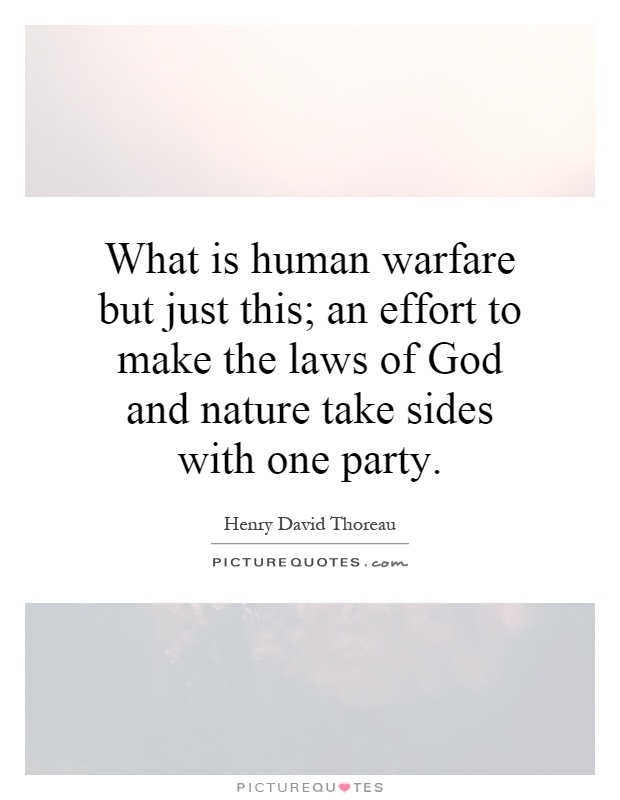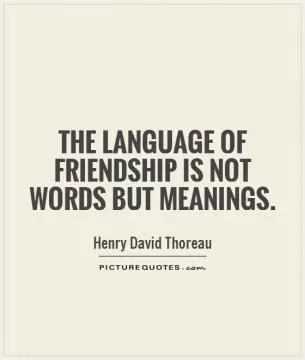What is human warfare but just this; an effort to make the laws of God and nature take sides with one party

What is human warfare but just this; an effort to make the laws of God and nature take sides with one party
Henry David Thoreau, a renowned American philosopher, poet, and essayist, was a staunch advocate for nonviolent resistance and civil disobedience. He believed that human warfare was a futile and destructive endeavor that only served to perpetuate violence and suffering. Thoreau famously stated, "What is human warfare but just this; an effort to make the laws of God and nature take sides with one party." This quote encapsulates his belief that war goes against the natural order of the universe and is ultimately a futile attempt to impose human will on the world.Thoreau's philosophy was deeply rooted in his belief in the inherent goodness of nature and the interconnectedness of all living beings. He saw war as a violation of this natural harmony, a disruption of the balance that exists in the world. By attempting to make the laws of God and nature take sides with one party, humans were essentially going against the very principles that govern the universe.
Thoreau's views on war were also influenced by his belief in the power of individual conscience and moral autonomy. He believed that each person had a duty to follow their own moral compass and act in accordance with their own principles, even if it meant going against the prevailing norms of society. For Thoreau, war was the ultimate betrayal of this individual autonomy, as it required individuals to subjugate their own moral judgment to the will of the state or other authority.
Thoreau's ideas on war and violence were further shaped by his experiences living in a society that condoned slavery and supported unjust wars, such as the Mexican-American War. He saw firsthand the devastating effects of violence and oppression, and he was deeply troubled by the moral compromises that people were willing to make in the name of power and control.












 Friendship Quotes
Friendship Quotes Love Quotes
Love Quotes Life Quotes
Life Quotes Funny Quotes
Funny Quotes Motivational Quotes
Motivational Quotes Inspirational Quotes
Inspirational Quotes